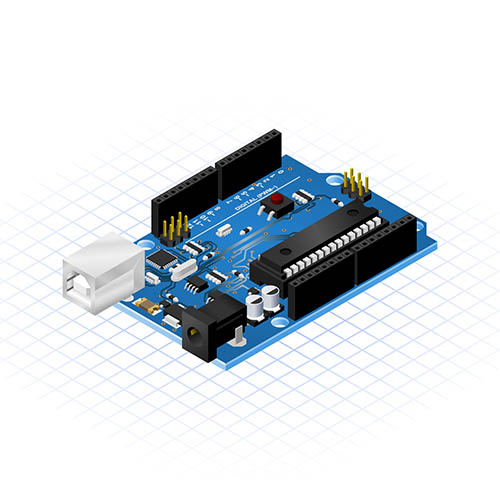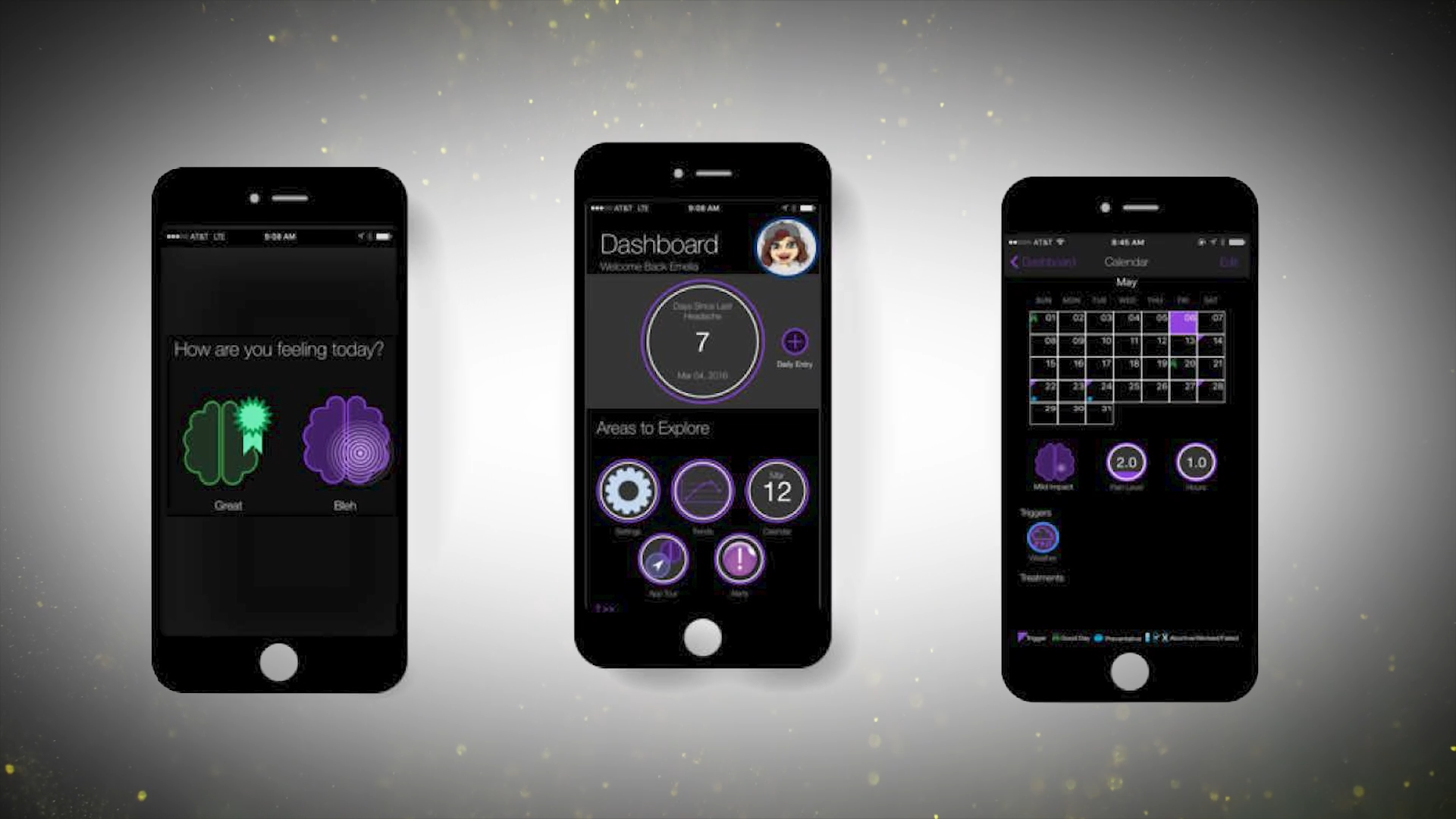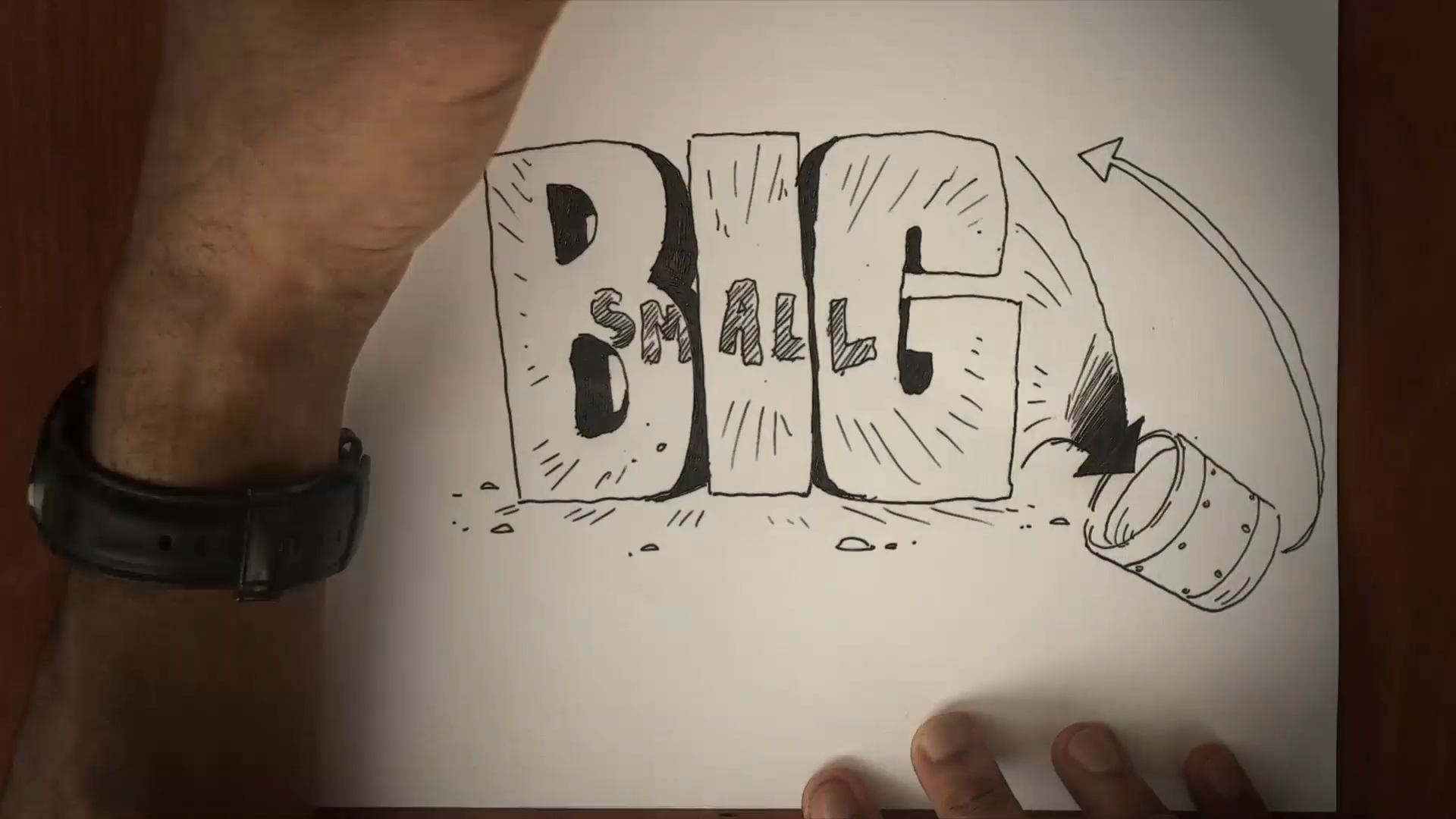Community-Based Program
Competitions
Overview
Maryland MESA strives to provide students in grades 3–12 with the opportunity to explore STEM through a fun, hands-on program. This STEM initiative:
- prepares students to enroll in and graduate from a two- or four-year college or university with a degree in a STEM field;
- targets students who are traditionally underrepresented in these fields—specifically, minority and female students; and
- helps students develop leadership skills, improve their academic performance, work as a team, and compete effectively.
Maryland MESA uses a project-based approach to teach participating students the fundamentals of engineering and computer science. Student teams work on projects (called challenges) which are designed by APL and the National MESA organization to help students develop computer programming and engineering skills. The teams then compete against other teams that have worked on the same challenge.
The team winning first place for each challenge will advance to the in-person Statewide MESA Competition. Since the Community-Based competition is virtual, the winning teams will need to convert their virtual presentations into an in-person presentation.
Click on the appropriate grade level below to see descriptions of the current Maryland MESA Community-Based challenges.
Elementary-School-Level Challenges
Mobile App Challenge
Registration Fee: $99
Material Costs: $0
Mobile technology, like smartphones, is changing the way we live. Apps let us watch videos, share pictures, play games, and even order dinner with a phone. Engineers are always looking for ways to help people, and mobile technology has given them a whole new set of tools. In this MESA challenge, teams will use MIT App Inventor, a block-based programming language similar to Scratch, to create an app that can improve people’s lives by addressing a health issue in our society.
Theme: Using Mobile Apps to Benefit People: Addressing Health Issues in our Community.
Challenge Components: The main focus of this challenge is the mobile app that students design and create. However, there is much more to this challenge than just writing the code for the app. Teams will submit a variety of items, all designed to show off their hard work, creativity, and approach to designing the app. Each component of the competition allows the team to shine in a different way!
- Video-Recorded Presentation and Demonstration: Each team will produce a video-recorded presentation describing their app and their design process. This presentation will provide judges with insight into each team’s approach to developing a solution to the challenge. The presentation component is a great way for students to show off their creativity!
- Electronic Display Board: Using PowerPoint, each team will create an electronic display board to showcase their project.
- App Design and Code: The code files for the app will be submitted in advance of the competition. STEM professionals will evaluate the code as well as the overall design of the app.
Scoring: All entries will be submitted electronically in February. Projects will be scored by teams of APL staff. Results of the competition will be announced during an awards ceremony in March.
Competition rules and requirements will be released to registered teams in October.
Storybook Theme-Park Ride Challenge

Registration Fee: $99
Material Costs: $0
Students learn the engineering design process and some basic physics while exercising their creativity in this design-and-build challenge. Student teams design and make a functional model of a theme park ride based on a storybook of the team’s choosing. The ride must be designed to safely carry four “passengers” (one 9/16-inch diameter marble, two ping-pong balls, and one golf ball) through two consecutive test runs.
Theme: Students will draw inspiration from a favorite book to select the theme for their amusement park ride.
Challenge Components: While the heart of this engaging challenge is the functional model of an amusement park ride that students design and create, there is much more to this project. In addition to the model, teams will also create a video-recorded presentation and an electronic display board. Each component of the competition is designed to show off the team’s hard work, ingenuity, and creativity in a different way!
- Design and Construction: Entries will be scored on the design, construction, and function of the working model. The ride must be designed to safely carry four “passengers” (one marble, two ping-pong balls, and one golf ball) through two consecutive test runs. The ride must be made primarily of repurposed and upcycled materials.
- Video-Recorded Presentation and Demonstration: Each team will produce a video-recorded presentation describing the amusement park ride and the design process. The presentation provides judges with insight into each team’s approach to developing a solution to the challenge. During the presentation, students will also demonstrate that their ride can safely carry the passengers. The presentation component is a great way for students to show off their creativity!
- Electronic Display Board: Using PowerPoint, each team will create an electronic display board to showcase their project.
Scoring: All entries will be submitted electronically in February. Projects will be scored by teams of APL staff. Results of the competition will be announced during an awards ceremony in March.
Competition rules and requirements will be released to registered teams in October.
Expanding Structure Challenge
Registration Fee: $99
Approximate Material Costs: $99
In this fun project, teams will use components designed by APL staff specifically for this MESA challenge to build a structure. The structure will be made of parts that fit entirely inside a small transport container. The structure will be deployed/assembled to span a greater distance than the length of the transport container. The team will remove the parts of their structure from the transport container, assemble the structure, and hang weight from the structure. Everyone will be on pins and needles waiting for the inevitable SNAP and CRASH when the structure reaches its breaking point!!!
Theme: Expanding Structure Challenge – Operation Space!
Materials: Since this challenge uses proprietary materials produced specifically for this MESA challenge, participating teams must purchase the MD MESA Expanding Structure Challenge Materials Kit. Additionally, some readily available materials will be required.
Challenge Components: The focus of this project is the structure students design, build, and test. The team will make improvements to the design until they have the strongest, most efficient structure possible.
- Video-Recorded Presentation and Demonstration: The video-recorded presentation will provide judges with insight into each team’s approach to developing a solution to the challenge. The presentation will also include a demonstration of the team’s design being tested (and likely broken!).
- Demonstration: During the video-recorded presentation, the team will remove all parts of their structure from the transport tube, assemble the structure on the testing apparatus, place the loading plate onto the structure, and hang a bucket from the loading plate. It is a race against the clock since this all has to be done within a specific amount of time! Team members will add weight to the container hanging from the structure until it fails.
Scoring: All entries will be submitted electronically in February. Video-recorded presentations will be scored by teams of APL staff. Results of the competition will be announced during an awards ceremony in March.
Competition rules and requirements will be released to registered teams in October.
Middle-School-Level Challenges
Mobile App Challenge
Registration Fee: $99
Material Costs: $0
Mobile technology, like smartphones, is changing the way we live. Apps let us watch videos, share pictures, play games, and even order dinner with a phone. Engineers are always looking for ways to help people, and mobile technology has given them a whole new set of tools. In this MESA challenge, teams will use MIT App Inventor, a block-based programming language similar to Scratch, to develop an app that can improve people’s lives by addressing a health issue in our society.
Theme: Using Mobile Apps to Benefit People: Addressing Health Issues in our Community.
Challenge Components: The primary focus of this challenge is the mobile app that students design and create. However, there is much more to this challenge than just writing the code for the app. Teams will submit several items, all designed to show off their hard work, creativity, and approach to designing the app. Each component of the competition allows the team to shine in a different way!
- Video-Recorded Presentation and Demonstration: Each team will produce a video-recorded presentation describing their app and their design process. This presentation will provide judges with insight into each team’s approach to developing a solution to the challenge. The presentation component is a great way for students to show off their creativity!
- Electronic Informational Brochure: Each team will design an electronic brochure about the app they created. Think of the documentation that typically accompanies a tech product.
- Electronic Display Board: Using PowerPoint, each team will create an electronic display board to showcase their project.
- App Design and Code Implementation: The code files for the app will be submitted in advance of the competition. STEM professionals will evaluate the code as well as the overall design of the app.
Scoring: All entries will be submitted electronically in February. Projects will be scored by teams of APL staff. Results of the competition will be announced during an awards ceremony in March.
Competition rules and requirements will be released to registered teams in October.
National Engineering Design Competition (NEDC) Challenge

Registration Fee: $99
Approximate Material Costs: $99
The MESA USA NEDC is a tech-based challenge where middle school students are asked to develop solutions for people using a human-centered design approach. Utilizing a microprocessor as a key component, each team will develop a device designed to minimize or eliminate barriers encountered by a person or by people, in general. Students will identify an issue dealing with inequity, engineer a solution, develop a prototype, and present their solution.
Theme: Designing for Equity in Your Community
Challenge Components: The components listed below will be used to assess the team’s implementation of a human-centered design approach, use of the engineering design process, and successful integration of hardware and software in the prototype, as well as the overall functionality of the prototype. Each component of the competition allows the team to shine in a different way!
- Design Brief: The objective is to provide a short, non-technical overview of the entire project.
- Electronic Display Board: The objective is to provide an overview of the project, highlight key points of the design process, discuss relevant testing and data collection, present the prototype, and share conclusions and recommendations for further development. Using PowerPoint, each team will create an electronic display board to showcase their project.
- Video-Recorded Prototype Pitch: The objective is to convince the audience that the design meets the user’s needs, is superior to other options available, and has value as a product to address an issue of inequity. Students will deliver a creative and engaging video-recorded presentation to pitch their prototype.
- Video-Recorded Technical Presentation: The objective is to provide an overview of the prototype functionality, including a technical explanation of the mechanical operations, software operations, and integration of the two. Students will deliver a video-recorded presentation, which includes a demonstration of the functionality of the prototype.
Scoring: All entries will be submitted electronically in February. Projects will be scored by teams of APL staff. Results of the competition will be announced during an awards ceremony in March.
Competition rules and requirements will be released to registered teams in October.
Expanding Structure Challenge
Registration Fee: $99
Approximate Material Costs: $99
In this fun project, teams will use components designed by APL staff specifically for this MESA challenge to build a structure. The structure will be made of parts that fit entirely inside a small transport container. The structure will be deployed/assembled to span a greater distance than the length of the transport container. The team will remove the parts of their structure from the transport container, assemble the structure, and hang weight from the structure. Everyone will be on pins and needles waiting for the inevitable SNAP and CRASH when the structure reaches its breaking point!!!
Theme: Expanding Structure Challenge – Operation Space!
Materials: Since this challenge uses proprietary materials produced specifically for this MESA challenge, participating teams must purchase the MD MESA Expanding Structure Challenge Materials Kit. Additionally, some readily available materials will be required.
Challenge Components: The focus of this project is the structure students design, build, and test. The team will make improvements to the design until they have the strongest, most efficient structure possible.
- Video-Recorded Presentation and Demonstration: The video-recorded presentation will provide judges with insight into each team’s approach to developing a solution to the challenge. The presentation will also include a demonstration of the team’s design being tested (and likely broken!).
- Demonstration: During the video-recorded presentation, the team will remove all parts of their structure from the transport tube, assemble the structure on the testing apparatus, place the loading plate onto the structure, and hang a bucket from the loading plate. It is a race against the clock since this all has to be done within a specific amount of time! Team members will add weight to the container hanging from the structure until it fails.
Scoring: All entries will be submitted electronically in February. Video-recorded presentations will be scored by teams of APL staff. Results of the competition will be announced during an awards ceremony in March.
Competition rules and requirements will be released to registered teams in October.
High-School-Level Challenges
Mobile App Challenge
Registration Fee: $99
Material Costs: $0
Mobile technology, like smartphones, is changing the way we live. Apps let us watch videos, share pictures, play games, and even order dinner with a phone. Engineers are always looking for ways to help people, and mobile technology has given them a whole new set of tools. In this MESA challenge, teams will use Android Studio to develop an app that can improve people’s lives by addressing a health issue in our society.
Theme: Using Mobile Apps to Benefit People: Addressing Health Issues in our Community.
Challenge Components: The primary focus of this challenge is the mobile app that students design and create. However, there is much more to this challenge than just writing the code for the app. Teams will submit several items, all designed to show off their hard work, creativity, and approach to designing the app. Each component of the competition allows the team to shine in a different way!
- Video-Recorded Presentation and Demonstration: Each team will produce a video-recorded presentation describing their app and their design process. This presentation will provide judges with insight into each team’s approach to developing a solution to the challenge. The presentation component is a great way for students to show off their creativity!
- Electronic Informational Brochure: Each team will design an electronic brochure about the app they created. Think of the documentation that typically accompanies a tech product.
- Electronic Display Board: Using PowerPoint, each team will create an electronic display board to showcase their project.
- App Design and Code Implementation: The code files for the app will be submitted in advance of the competition. STEM professionals will evaluate the code as well as the overall design of the app.
Scoring: All entries will be submitted electronically in February. Projects will be scored by teams of APL staff. Results of the competition will be announced during an awards ceremony in March.
Competition rules and requirements will be released to registered teams in October.
National Engineering Design Competition (NEDC) Challenge

Registration Fee: $99
Approximate Material Costs: $99
The MESA USA NEDC is a tech-based challenge where high school students are asked to develop solutions for people using a human-centered design approach. Utilizing a microprocessor as a key component, each team will develop a device designed to minimize or eliminate barriers encountered by a person or by people, in general. Students will identify an issue dealing with inequity, engineer a solution, develop a prototype, and present their solution.
Theme: Designing for Equity in your Community
Challenge Components: The components listed below will be used to assess the team’s implementation of a human-centered design approach, use of the engineering design process, and successful integration of hardware and software in the prototype, as well as the overall functionality of the prototype. Each component of the competition allows the team to shine in a different way!
- Design Brief: The objective is to provide a short, non-technical overview of the entire project.
- Electronic Display Board: The objective is to provide an overview of the project, highlight key points of the design process, discuss relevant testing and data collection, present the prototype, and share conclusions and recommendations for further development. Using PowerPoint, each team will create an electronic display board to showcase their project.
- Video-Recorded Prototype Pitch: The objective is to convince the audience that the design meets the user’s needs, is superior to other options available, and has value as a product to address an issue of inequity. Students will deliver a creative and engaging video-recorded presentation to pitch their prototype.
- Video-Recorded Technical Presentation: The objective is to provide an overview of the prototype functionality, including a technical explanation of the mechanical operations, software operations, and integration of the two. Students will deliver a video-recorded presentation, which includes a demonstration of the functionality of the prototype.
Scoring: All entries will be submitted electronically in February. Projects will be scored by teams of APL staff. Results of the competition will be announced during an awards ceremony in March.
Competition rules and requirements will be released to registered teams in October.
Expanding Structure Challenge
Registration Fee: $99
Approximate Material Costs: $99
In this fun project, teams will use components designed by APL staff specifically for this MESA challenge to build a structure. The structure will be made of parts that fit entirely inside a small transport container. The structure will be deployed/assembled to span a greater distance than the length of the transport container. The team will remove the parts of their structure from the transport container, assemble the structure, and hang weight from the structure. Everyone will be on pins and needles waiting for the inevitable SNAP and CRASH when the structure reaches its breaking point!!!
Theme: Expanding Structure Challenge – Operation Space!
Materials: Since this challenge uses proprietary materials produced specifically for this MESA challenge, participating teams must purchase the MD MESA Expanding Structure Challenge Materials Kit. Additionally, some readily available materials will be required.
Challenge Components: The focus of this project is the structure students design, build, and test. The team will make improvements to the design until they have the strongest, most efficient structure possible.
- Video-Recorded Presentation and Demonstration: The video-recorded presentation will provide judges with insight into each team’s approach to developing a solution to the challenge. The presentation will also include a demonstration of the team’s design being tested (and likely broken!).
- Demonstration: During the video-recorded presentation, the team will remove all parts of their structure from the transport tube, assemble the structure on the testing apparatus, place the loading plate onto the structure, and hang a bucket from the loading plate. It is a race against the clock since this all has to be done within a specific amount of time! Team members will add weight to the container hanging from the structure until it fails.
Scoring: All entries will be submitted electronically in February. Video-recorded presentations will be scored by teams of APL staff. Results of the competition will be announced during an awards ceremony in March.
Competition rules and requirements will be released to registered teams in October.



